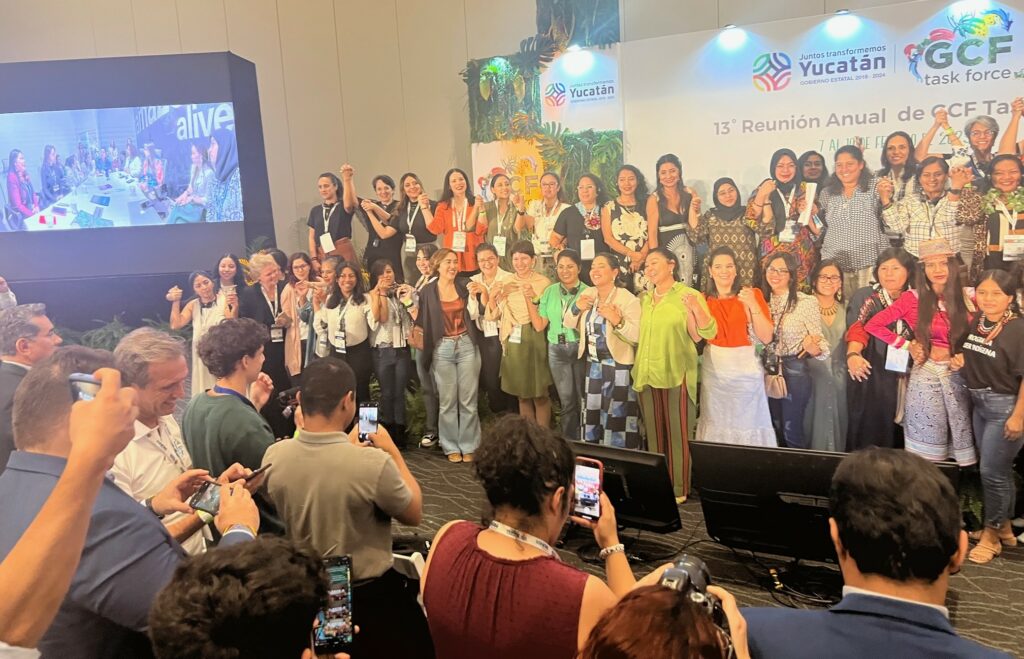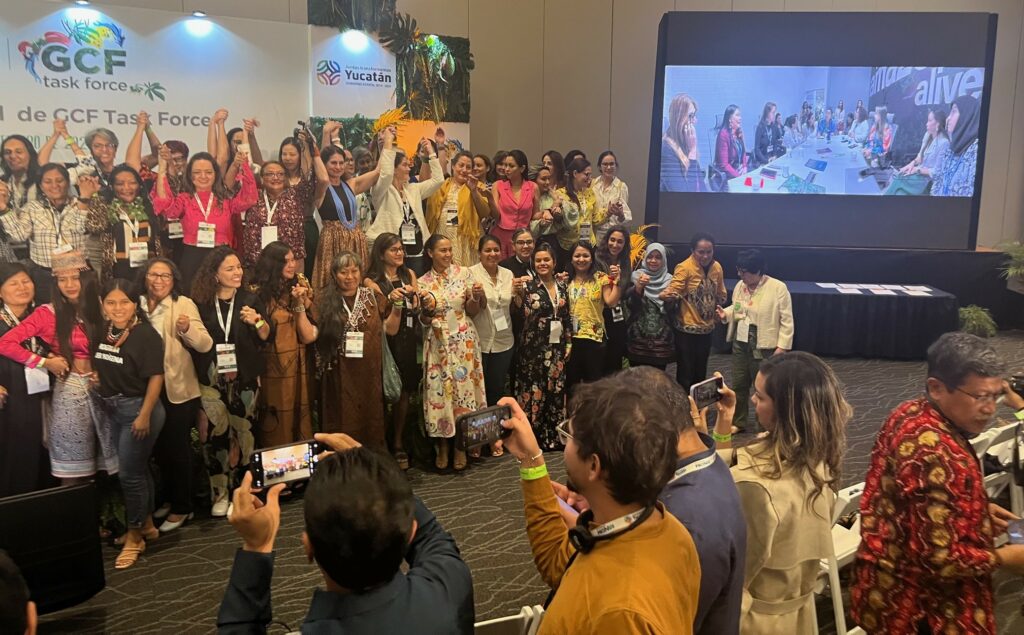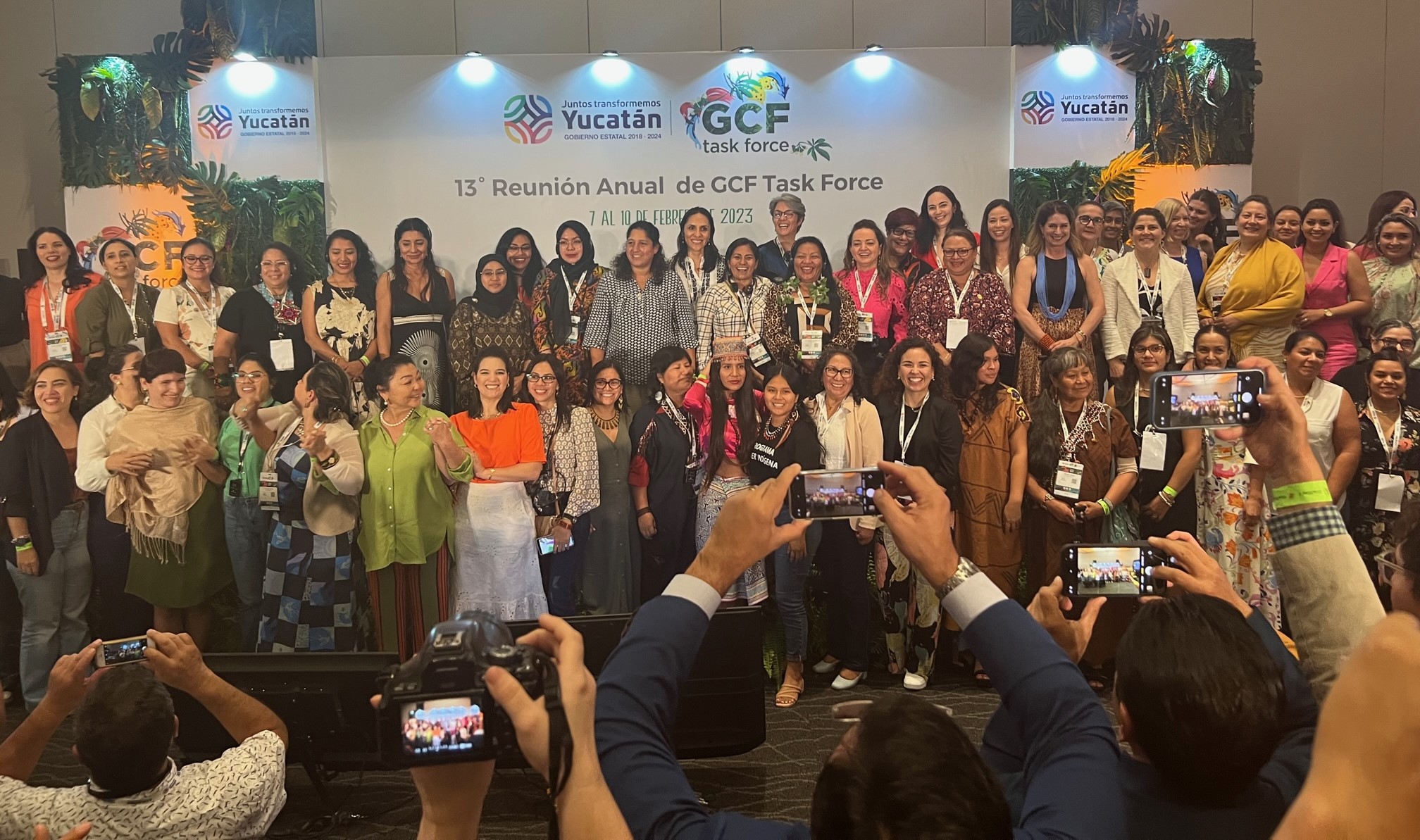Women for Forests and Climate
After many years of workshops, surveys, meetings, and discussions, the incredible women leaders of the GCF Task Force closed out our 13th Annual Meeting in Merida, Yucatan on February 9, 2023, with a powerful message of unity, partnership, and leadership: the release and endorsement of the GCF Task Force’s Gender Policy, Women for Forests and Climate.
Our Project Director, Colleen Scanlan Lyons, along with our Country Directors Silvia Llamas (Mexico), Syahrina Anggraini (Indonesia), and Fabiola Muñoz (Peru), led women delegates, environment secretaries, and vice-prefects of the GCF Task Force who had been advocating for a formal gender policy in a round of responses on why their work as women in the climate and forest space matters. And matter it does!
Governors and Vice-Governors present during the 13th Annual Meeting had already endorsed the policy during closed session on Tuesday, February 7. However, the public launch and immediate and incredible support for this policy was overwhelming. Every woman present during the closing ceremony (nearly 80 at that time!) was invited on stage for a group photo, and everyone present was invited to pledge their support across multiple languages and many sheets of signature paper on the side of the stage.

 We know we have more work to do to, but we are committed to making good on this pledge together.
We know we have more work to do to, but we are committed to making good on this pledge together.
The full policy is included below:
After meeting at COP 27 in Sharm el-Sheikh, Egypt, and now gathered on the occasion of the 13th Annual Meeting of the Governors’ Climate and Forests Task Force (GCF Task Force) in Merida, Yucatan, we—women leaders within and stakeholders of—the Governors’ Climate and Forests (GCF) Task Force, along with governors, members and allies of the GCF Task Force, pledge to advance a gender agenda that strengthens the important forest and climate work we do in our states, in our regions, and in the broader global GCF Task Force network. We recognize that a diversity of voices and perspectives is essential for fortifying our work individually and collectively; this enables us to better advance our common agenda of promoting forest conservation, social inclusion, and sustainable livelihood development in the regions of the GCF Task Force. We, members of and stakeholders in the GCF Task Force, and especially the Women for Forests and Climate, seek to promote this work to guarantee visibility, voice, and unity among those who identify as women. We pledge to:
- Promote gender representation in the GCF Task Force as a network, as well as in key leadership bodies, including the GCF Task Force Executive Committee and global and regional Indigenous peoples and local communities (IPLC) Committees
- Develop specific activities, policies, and practices to advance gender equity within the forest and climate space, through:
- Internal norms and practices that consider gender within the GCF Task Force governance policy
- Training and capacity building in gender-related issues for GCF Task Force delegates, secretaries, and stakeholders
- Leadership and empowerment to advance and draw on the expertise of women in government, youth, and women in communities connected to tropical forests
- Metrics and tracking mechanisms to promote and measure gender equity within the GCF Task Force
- Consideration of gender within specific topical areas of our common forest and implementation of our common forest and climate agenda, including bioeconomy, sustainable livelihoods, forest management, and other conservation and development strategies
- An internal GCF Task Force working group to promote and advance this agenda in member states and provinces, as well as across the global network, at annual GCF Task Force meetings, UN Conferences of the Parties (COPs), and other forest and climate events
Above all, we commit to using the state, regional, and global GCF Task Force network as a platform for promoting gender equity to better conserve forests, to promote human development, and to foster voice, visibility, and unity among those within and alongside our global network. We recognize the need for allies in this agenda, and call upon the Governors of the GCF Task Force, secretaries and technical specialists, and key stakeholders in our global network to join us in this effort.

